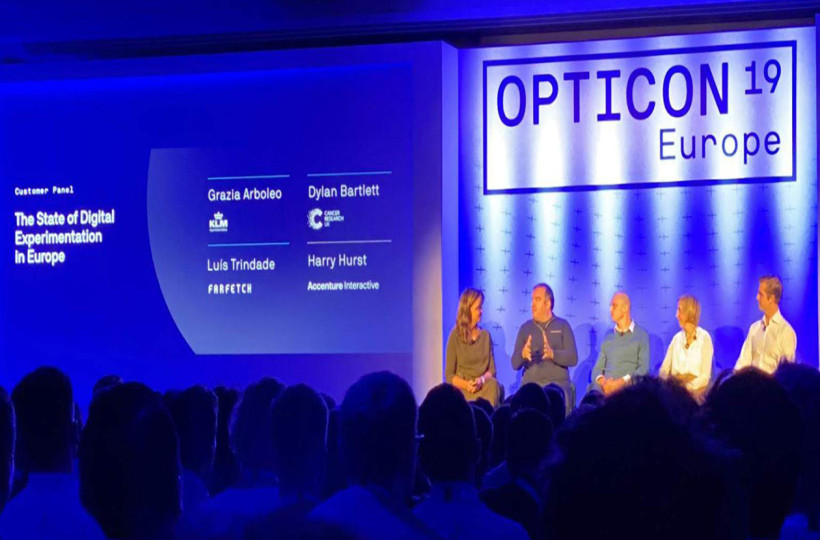
Farfetch has the mission to become the luxury fashion platform connecting creators, curators and consumers, and that's why we have been deploying the power of experimentation right from the start. Having now grown to employ more than 3,200 people, serving 1.7 million customers and offering a range of new services, I had the opportunity to share at Opticon19how we see experimentation moving forward.
Experimentation has always been part of our DNA, but different parts of the business were using different tools and adopting different approaches. As we grew, this started to present challenges - such as duplication of effort. What we needed was a single framework that would enable us to consistently apply experimentation across the entire customer journey.
This framework won't stop with marketing and product development, but also incorporating back office tools. We have third parties releasing feature after feature, yet we are not experimenting on how effectively they are working for us. Learning to track the features we integrate into our company represents a big challenge right now.
With over 30+ teams now using experimentation, knowledge sharing represents an essential part of moving to the next level. Our test and learn centre of excellence includes a regular experimentation clinic. This is where we identify new areas for experimentation, hold regular sharing and training sessions, and evolve our on-boarding experimentation kit for new joiners. The goal is to make sure we encourage people to experiment not just because they need to, but because they really want to.
The experimentation team oversees a range of other initiatives designed to sustain momentum across the business. In addition to core product and data experimentation teams, specialist ambassadors work to connect business and experimentation, share best practices and, as the company expands internationally, adapt processes to the needs of local cultures - as has recently been the case in China.
We are integrating our internal platforms with third parties like Optimizely to provide absolute consistency. This supports developments like our self service deep dives that go beyond basic metrics. We know that most experiments fail, so we need to understand why. These deep dives allow everyone to see exactly what's happening when they run an experiment.
Experimentation needs to be driven by learning and not results. Moving our mindset from winning rates to learning is a big challenge. Even if we run a winning experiment it may not necessarily be implemented. For example, we recently achieved great results with a test, but the learning behind them told us not to push it live but to iterate and make even more powerful changes.
We want to scale experimentation in the company, by integrating new technologies - some of them presented at Opticon19 - as well as offering testing capabilities to partners. When someone uses our platform we want to enable experimentation from day one.